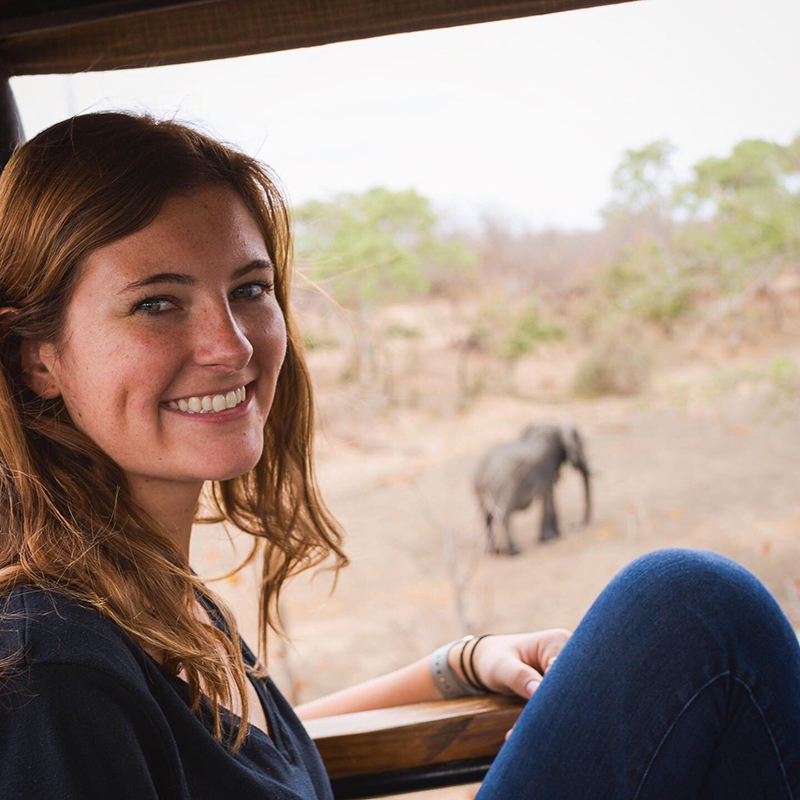Posted: 5/27/2025
Elephant researcher wins 2025 doctoral award in SNR
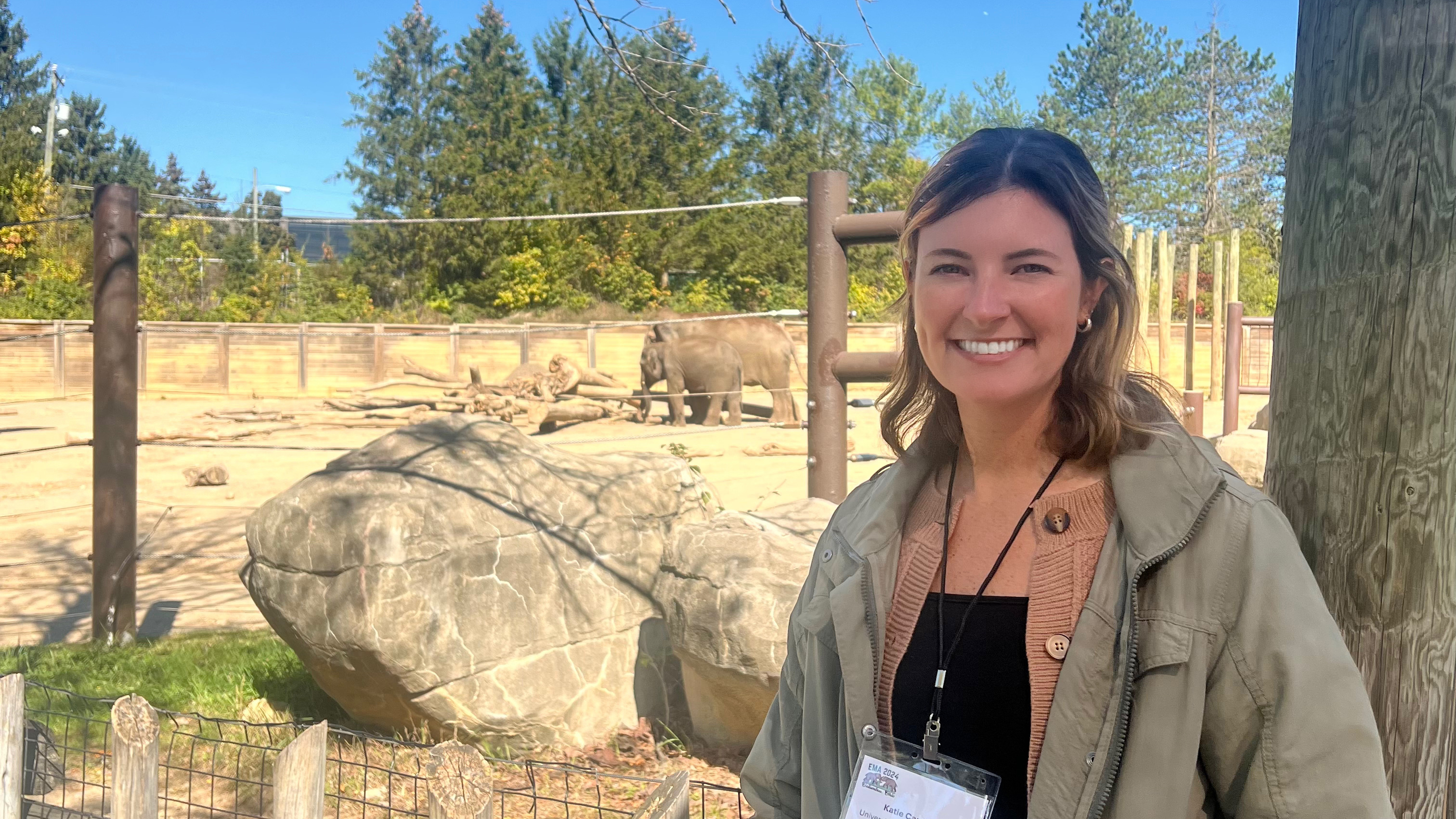
By Ronica Stromberg
Nebraska is a hot spot for elephant research, and Katie Campbell knows it.
The Illinois native came to Nebraska in 2018 to study elephants as a master's student at University of Nebraska-Omaha. Now a doctoral student at the University of Nebraska-Lincoln, Campbell recently won a Meritorious Graduate Student Award from the School of Natural Resources for her many accomplishments, including leading research on the reproductive health of African male elephants.
Still, anyone unaware of Nebraska as a luminary of loxodonta research shouldn't feel alone.
"It's just such a crazy concept to a lot of people that Nebraska is where you go to study elephants," Campbell said.
She points out, though, that Omaha is headquarters for the For Elephants organization that partly supports her research and that her coadvisor, Kari Morfeld, runs. The state also has 10 elephants at Omaha's Henry Doorly Zoo and Aquarium, although Campbell hasn't included them in her research because five are females and the others are juveniles.
Instead, Campbell has been studying 18 male elephants, called bulls, at zoos across the country. Like other wild animals, elephants breed less successfully in captivity than in the wild. Although past researchers have looked at and addressed reproductive issues of female elephants, few cast a sideways glance at the males.
Campbell learned at the outset of her doctoral project that of the 41 African bulls then in captivity in the United States, only seven had offspring. One bull sired 18 babies in the population, and another sired nine. Knowing that zoos are viewed in conservation as potential gene pools for suffering wild animal populations, Campbell saw a potential problem.
"When I started this, it was kind of amazing to see that there have been so few sires and a lot of the offspring are half-siblings," she said. “Thinking about the future, that's going to cause a big issue with genetics, which is not what we want to do in conservation."
She and Morfeld set out to zoos across the country to collect semen samples and train zoo teams how to collect them from their bulls. The process is safe, Campbell said, and similar to how it's done with cattle. The bull elephant is led into what looks like a large cattle shoot and fed treats while given a rectal stimulation. A researcher off to the side collects the sample with a long pole with a bag on the end. The process does not harm elephants, and they are trained for it months in advance, regularly going into the shoot for medical treatments like blood draws and foot checks.
"They're very smart, and in the right circumstances, they're very tame animals and everything," Campbell said. "It's not like we just throw them in there or do this on a whim. It's a long process of getting them used to this."
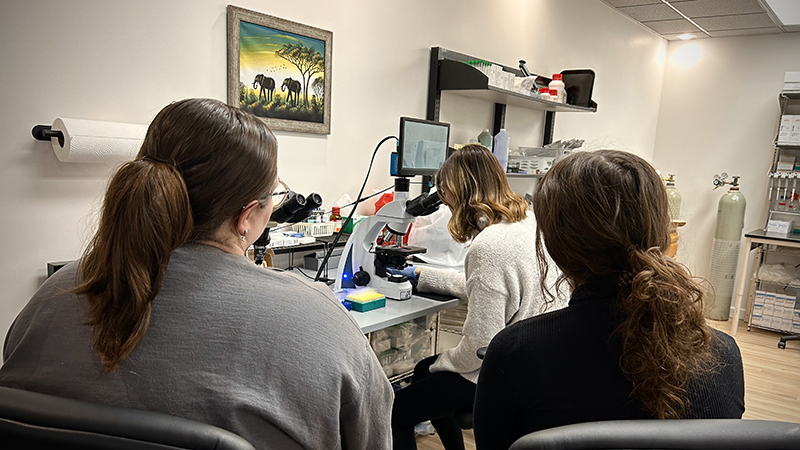
She has frozen the semen samples in straws and established the first elephant sperm bank in Omaha, with deposits of 10,000 straws. While zoos may not have the equipment or know-how to properly freeze and preserve semen, they own the straws and can use them for artificial insemination or other purposes. Campbell said the sperm bank will continue even after her project is done.
"I see the impact of this is that these samples can be used far into the future," she said. "Hopefully, we can work on increasing genetic diversity by using these samples and by increasing the number of males that are trained for semen collection and that we can use in AIs."
From analyzing the samples, Campbell confirmed earlier findings that the quality, or fertility, of the samples varied not only from bull to bull but in the same bull from one time to the next. She said higher testosterone levels are associated with better samples.
Male elephants go through musth, an annual reproductive period of about five to nine weeks when their testosterone levels spike and they become more aggressive. Young bulls are forced to leave their maternal herd, join bachelor herds and compete for mates. Sample quality tends to increase during musth, Campbell said.
In her master's research, she showed an association between the glucose-to-insulin ratio and testosterone levels. The G-I ratio indicates whether a body has a healthy metabolism. A higher G-I ratio is usually associated with a better-quality sample, Campbell said.
In her doctoral research, she observed that in most poor quality samples, the pH was abnormal, the fluid being really acidic. She is looking at inflammatory markers to figure out why that is.
Season and temperature are also factors she has noted may influence bull fertility.
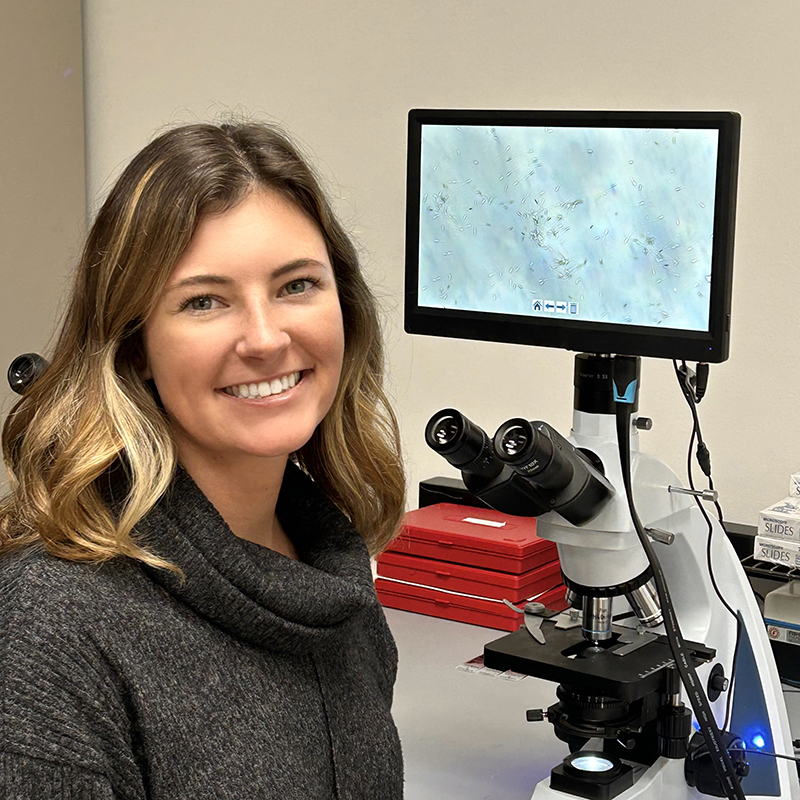
"In winter months when we're collecting and it's 10 degrees outside, we find that a lot of those samples are really poor quality and that most of the cells are dead and motility is super low," she said. "So, I think seasonality and temperature have a big role in the quality of the sample."
Then, too, elephants are social animals, and if unable to socialize in a zoo as they would in the wild, perhaps that could affect bulls' fertility. Campbell said she received a good sample from a bull that she had only received poor samples from before, but near him, a female elephant had begun to cycle. In zoos, bulls may not have cycling females near them or the females may be related to them.
She said researchers are also looking at how other males might influence bull fertility. Young bulls in the wild learn from their bachelor herd how to interact with females, but they may not have older bulls to learn from in a zoo.
"We're finding that that is probably a really important factor that is lacking in zoos, and so, there's been a lot of talk of how we can change that," Campbell said.
Moving bulls from zoo to zoo is expensive, and not every zoo has the space or staff to care for males for breeding. Campbell said this is where the sperm bank and artificial insemination could diversify and strengthen the gene pool, possibly even including samples taken in Africa and transported here in straws.
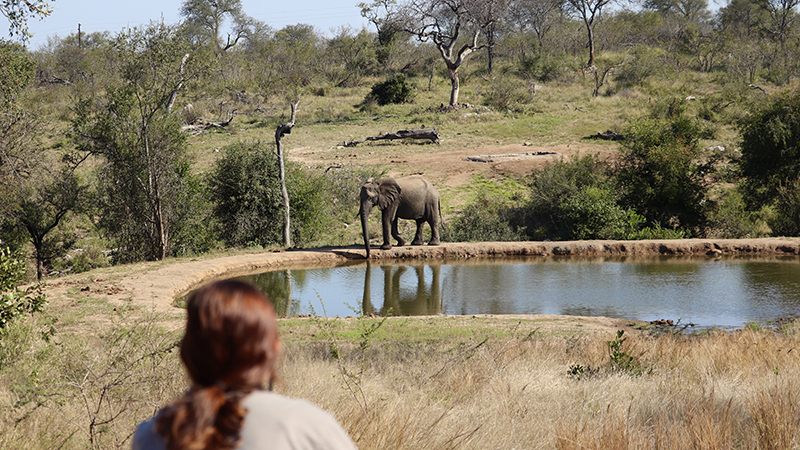
She said she would like to do more research on wild elephants in Africa, at Kruger National Park. She helped lead a 2022 study abroad trip to South Africa with her School of Natural Resources advisor, John Carroll, and stayed an additional month to work at the For Elephants lab there. To collect samples in Africa, she said she would need to do so while the elephants are tranquilized for another medical procedure and obtain permits, which would require considerable time.
She said she expects to graduate in December and hopes to continue researching elephants, although funding may pose challenges. She contacted about 70 researchers at zoos and universities before finding her current funding with Morfeld and For Elephants. She received additional graduate support through work at the university in Student Services and a grant from the Institute of Museum and Library Services.
Campbell expressed gratitude for the Meritorious Graduate Student Award she recently received and her time in Nebraska.
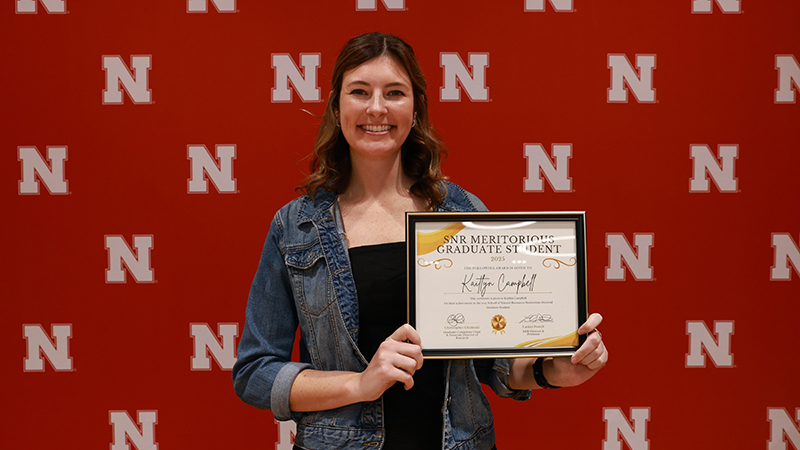
"I never imagined myself living in Nebraska, and I have enjoyed it way more than I ever thought I would," she said. "I absolutely love the city of Omaha. I love Lincoln. I love the university, and especially, the School of Natural Resources has been such an incredible experience, because everyone there is so welcoming. I've just from the start felt like I was a part of the program of something big and so many opportunities."
